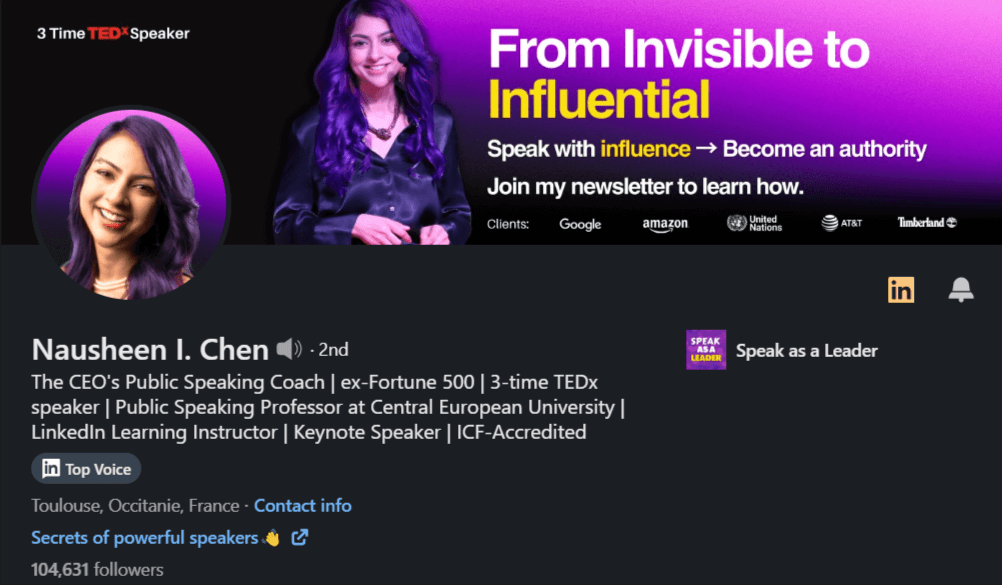🚀 TL;DR
- Remote business coaching gives solopreneurs flexibility, global access to expertise, and accountability without the overhead of in-person meetings.
- Structured frameworks, digital tools, and clear communication make virtual coaching just as effective as face-to-face work.
- Challenges like time zones, tech issues, and rapport-building can be managed with the right systems and expectations.
- Consistent sessions, goal clarity, and progress tracking are essential to maintaining momentum in a remote setup.
- When done well, remote coaching drives growth, confidence, and sharper decision-making for solo business owners.
Most business “coaching” happens in conference rooms, at expensive retreats, or through generic group programs that ignore your specific challenges.
That model is broken for modern solopreneurs, consultants, founders, and coaches.
You didn't build a remote business to fly to expensive locations or sit in traffic for coaching sessions. You didn't design your location-independent lifestyle to conform to someone else's schedule.
Yet traditional business coaching forces exactly those compromises.
I've been building remote businesses since 2005—long before it was trendy. From closing over $50 million in consulting and coaching deals, I've learned what works for location-independent professionals who want to scale their businesses strategically.
In this guide, I'll show you exactly how remote business coaching works for serious solopreneurs—and why it might be the missing piece in your growth strategy.
What solopreneurs actually need from a coach
Most online business coaches follow the same playbook: "Follow my vague vibes to success." Or “Replicate what I do” when your business dynamics are entirely different.
They sell motivation without methodology. Inspiration without implementation. Feel-good frameworks that collapse the moment you try to apply them to your actual business.
I've watched hundreds of solopreneurs waste five and six-figures on coaches who've never built what they're teaching. Career coaches who became coaches. Influencers selling courses on how to make money from courses. It’s madness.
Here's what I've learned from mentoring over 551 solopreneurs: you don't need someone to pump you up. You need someone to challenge your thinking and upgrade your systems.
Tactical clarity, not just motivation
When I work with experienced solopreneurs, they don't need pep talks. They need precision.
You already know your industry. You understand your clients. You've proven you can deliver results.
What you need is someone who can spot the blind spots you can't see from inside your business. Someone who can identify where you're leaving money on the table, where your processes create unnecessary friction, and which opportunities you're missing.
Systems that scale, not cookie-cutter advice
Generic business advice assumes every business is the same. It's not.
A solopreneur running a design consultancy faces different challenges than someone offering fractional COO services. Your growth strategy should reflect your specific business model, not follow some one-size-fits-all template.
When I analyze a solopreneur's business, I look at three core systems:
- Your offer: How you package and price your expertise to create leverage without adding complexity.
- Your client acquisition system: The specific methods that generate qualified prospects for your type of service.
- Your delivery framework: How you create consistent results while protecting your time and energy.
Most coaches give you generic templates. I help you build systems that work for your specific situation.
Accountability paired with experience
Accountability without expertise is just expensive babysitting.
You need someone who's been where you're going. Someone who has faced the same decisions has made the same mistakes and figured out what works.
When I challenge a client's pricing strategy or question their positioning, it's not theoretical. I've closed deals at every level, from $5,000 to $5,000,000. I know what resonates with different types of buyers and what kills deals before they start.
That experience means I can push you in the right direction instead of just pushing you to take action.
There's a $50k monthly solopreneur within you. But you need someone to challenge your thinking and upgrade your systems to get there.
Why remote coaching works best now
The best coaching happens when geography doesn't limit your options.
Traditional business coaching services force you to choose from whoever happens to be in your city. That's like hiring based on proximity instead of expertise.
Remote coaching flips this equation. You get access to the best mentors regardless of where they're located. You work with people who understand your specific challenges, not just those who happen to have an office nearby.
Flexibility and accessibility
Remote coaching adapts to your schedule instead of forcing you to adapt to someone else's.
I run my mentoring program with solopreneurs across six time zones. Our weekly workshops take place on Thursday mornings ET to accommodate different schedules. Our communication happens through Circle or Trello, which means you can get feedback when you need it—not just during scheduled office hours.
This flexibility matters when you're building a business. Challenges don't wait for Tuesday at 2 PM. Questions emerge when you're working on a proposal at 9 PM or thinking through a client issue over weekend coffee.
With remote coaching, support becomes available when you need it.
High-caliber insight without geographic limits
The consultant who can best help you grow your fractional CFO practice might live in Singapore. The mentor who understands your specific market might be based in Toronto.
Remote coaching removes artificial constraints and opens up possibilities.
I work with solopreneurs from Massachusetts to the Netherlands to Australia. Each brings different market perspectives and challenges. This global view makes every conversation richer and every solution more robust.
You're not limited to whoever happens to practice business coaching in your zip code.
Solopreneurs need less hand-holding, more precision
Experienced solopreneurs don't need someone to walk them through basic business concepts. You need focused guidance on specific growth challenges.
Remote coaching eliminates the inefficiencies of traditional mentoring. No small talk about traffic. No padding sessions to justify hourly rates. Just direct, tactical guidance on what matters most for your business.
When a client shares a challenge in our Circle group, they often get responses from me and other members within hours. Real-time problem-solving beats scheduling a meeting two weeks in advance to discuss an issue that has already evolved.
Remote coaching matches the speed and precision that modern businesses require.
My mentorship philosophy
I didn't become a business mentor by accident.
After over 20 years of building and scaling businesses, I realized that most business coaching is ineffective. Coaches teach theory without practice. They sell frameworks they've never tested under real market pressure.
My approach comes from closing over $50 million in consulting and coaching deals across multiple industries. Every strategy I teach, I've used. Every framework I share has been refined through actual client work.
Built from closing $50M+ in consulting and coaching
Experience matters in coaching—but the right kind of experience.
I've sat across from Fortune 500 executives and startup founders. I've pitched $10,000 projects and $500,000 engagements. I've closed deals in boardrooms and over Zoom calls.
It's battle-tested wisdom from thousands of real conversations with real buyers spending real money.
When I help a solopreneur refine their positioning, I know what resonates because I've tested different approaches across dozens of industries. When I critique a proposal, I can spot the exact phrases that kill deals because I've seen them fail repeatedly.
Most coaches give you what sounds good. I give you what works.
Systems, psychology, and sales—taught with lived experience
Successful solopreneurship requires three core competencies: building scalable systems, understanding client psychology, and closing high-value deals.
Most business advice focuses on one area while ignoring the others. You get tactical marketing tips without sales training—or mindset coaching without operational systems.
I teach the intersection of all three because that's where real growth happens.
- Systems thinking: How to build leverage into every aspect of your business—from client acquisition to service delivery to ongoing relationship management.
- Buyer psychology: Understanding how your ideal clients make decisions, what drives their urgency, and how to position your expertise as the obvious solution.
- Marketing and sales execution: The specific conversations, questions, and frameworks that turn prospects into high-paying clients.
Each area reinforces the others. Better systems give you confidence in sales conversations. Understanding client psychology helps you build more effective systems. Sales success validates your positioning and creates momentum.
Focus on helping solopreneurs hit $50k+ months
Not every business coach understands the solopreneur model.
Many assume you want to build an agency. Others push you toward digital products or online courses. Some try to turn you into an influencer, building massive audiences.
I focus exclusively on helping experienced service providers build sustainable, scalable businesses without big teams or complex overhead.
My clients typically start generating $5,000 to $30,000 per month but often feel stuck. They're good at what they do but haven't figured out how to systemize their expertise or command premium rates.
The goal isn't just higher revenue. It's building a business that gives you more freedom, not less. More leverage, not more complexity. More profit, not just more work.
There's a $50K monthly solopreneur within you. But you need someone to challenge your thinking and upgrade your systems to get there.
Solopreneurs I've personally helped scale to six figures and beyond
The best proof of any coaching approach is the results it produces. I don't just teach theory. I work with real solopreneurs facing real challenges and help them achieve measurable outcomes.
1. Lara Acosta: From unemployed to #1 female LinkedIn creator

Lara came to me in 2022 with a problem most people would find overwhelming—unemployed, trying to get into grad school, and deciding to take LinkedIn seriously as a last-ditch effort.
One year later, she became the #1 female creator on LinkedIn. But here's what matters more than the vanity metrics: she built two businesses that make money.
She hit 20 million impressions and 300,000 followers, but the real win was converting that attention into revenue streams that don't disappear when the algorithm changes.
The breakthrough wasn't about posting more content. We helped her stop trying to be everything to everyone and structure her expertise into two focused businesses:
- LA Digital handles personal branding and ghostwriting for founders who want strategic content without the time investment
- Literally Academy teaches people how to build authentic personal brands on LinkedIn (launched September 2023)
Today, she has helped over 700 people build personal brands they actually want to be known for.
2. Matt Barker: From corporate marketing to $100,000+ digital products

Matt left his corporate marketing job in January 2022 with skills but no real system for turning expertise into consistent revenue. Sound familiar?
The problem wasn't that he couldn't do the work—it was packaging that expertise into offers people would pay premium prices for.
We focused on helping professionals create LinkedIn content that's "fast, easy, and fun to write." Instead of competing as another generic marketing consultant, he owned one specific approach.
Results: £70,000 from a single 4-day course launch. Two digital products that each hit over £100,000. More than $3 million in new client revenue was generated for his clients. 75 million content views and over 13,000 email subscribers who actively engage.
But here's the part most people miss: Matt didn't start with digital products. He first proved his frameworks with high-touch services, then identified what could scale without his direct involvement.
That progression from service to product is how you build leverage without losing your soul.
3. Nausheen Chen: Building authority through specialized expertise

When Nausheen and I started working together, she had the credentials: Fortune 50 executive training, award-winning films, and three TEDx talks. But she was stuck in the trap high achievers know well: being good at multiple things without clear positioning.
Generic communication training puts you in a crowded market where everyone sounds the same.
Instead, we focused on the exact pain point that drives executive decisions. Her positioning—"You know who gets the most clients and promotions? The person who can speak the best"—cuts through the noise because it connects to what people want.
Now, her business includes one-on-one coaching, keynote speaking, corporate training, teaching at Central European University, creating LinkedIn Learning courses, and hosting the "Speak as a Leader" podcast.
Multiple revenue streams, but all built around one clear expertise area.
Ready to scale solo?
Most solopreneurs think they need more clients to grow their business. But that’s not true.
You need better systems, clearer positioning, and strategic guidance from someone who has built what you're trying to build.
If you're tired of wasting time and money trying to figure it out alone, get a coach who can show you how.
If you're an experienced solopreneur ready to break through your current plateau, I can help 👋
My mentorship program for solopreneurs combines weekly workshops, systematic playbooks, and direct access to guidance that transforms how you think about and operate your business.
If you're ready to stop guessing and start building a business that scales without sacrificing your independence—let's talk:

